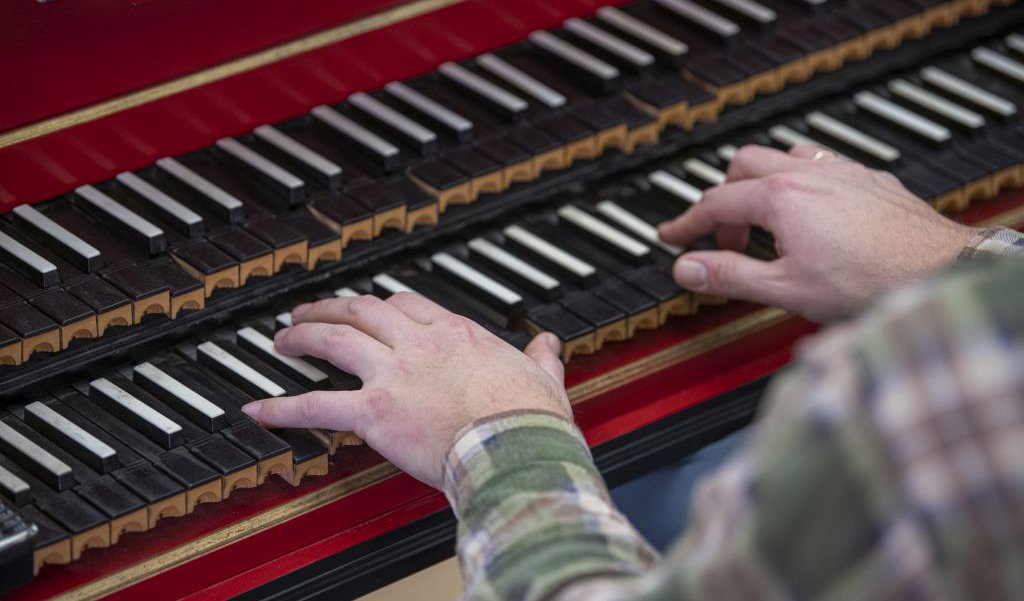
Program
Featuring
Soloist
- Zsuzsanna Szlávik (baroque violin)
- János Pilz (baroque violin)
- Kousay Mahdi (Baroque cello, cello)
- György Kertész (baroque cello)
- Gábor Tokodi (baroque guitar)
- Zoltán Szőke (natural horn)
- Eszter Lesták Bedő (violin)
- István Rajncsák (viola)
- Noémi Molnár (violin)
- Gabriella Pivon (baroque flute)
- Spányi, Miklós (harpsichord)
Other information
The event is about 2.5 hours long.
About the event
There are composers who need no life-changing experiences to create great works of music. Sometimes inexhaustible imagination applied to a conventional genre of the time is all it takes. On occasion, the composer himself becomes a source of inspiration as player of an instrument or spontaneously creates the outstanding masterpiece of his oeuvre while improvising under instruction. Vivaldi’s sonatas, Punto’s virtuosic, luscious pieces for the horn, and Bach’s grand canon series will be performed on period instruments by extraordinary ensembles formed from members of the BFO. In its structure and intimacy, the concert evokes the atmosphere of chamber concerts of times past, where each instrument had occasion to lead.
In the best sense of the word, Vivaldi was what we would call a pop star today. He demonstrated excellent judgment in maximizing the length of his movements in a few minutes, and picking the right spot for his melodies and felt at home among the musical conventions of his time, which he made the most of. His Op. 5 collection of half a dozen violin sonatas was written as a sequel to his Op. 2 set of 12 sonatas. Today’s concert will feature the first two of the six: the four-movement Sonata in F major and the three-movement Sonata in A major. Both works open with a Preludio, followed by a series of dance movements such as the nimble Italian Corrente, the slow Spanish Sarabanda, the sprightly, folksy Giga or the elegant Gavotta.
Giovanni Punto easily gained favor with his audiences by showing off his unparalleled virtuosity in his own works. Mozart praised his skills and Beethoven even composed a sonata for Punto and himself, which they first performed in Buda. The Czech horn player, who was born as Jan Václav Stich in 1746, and took the name Punto later in Italy, was a pioneer of the hand-stopping technique, which enabled him to play chromatic passages. His three-movement quartet opens with a striking unisono. The second movement includes both lyrical and virtuosic sections. An expression of common jubilation concludes the work.
The movements from Bach’s Musical Offering played in the second half of the concert are all based on a single musical theme given to the composer by Frederick the Great in 1747. Two months later, Bach’s original improvisations were reworked into a composition of ten canons, two fugues and a trio sonata. Bach inscribed the piece “Regis Iussu Cantio Et Reliqua Canonica Arte Resoluta” (the theme given by the king, with additions, resolved in the canonic style), the first letters of which spell out the word “ricercar,” an obsolete name for the fugue. Apart from the six- and three-voice movements, the riddle fugues are the most intriguing, which only provided the performers with the most essential of instructions.
Did you know? Both of Vivaldi’s violin sonatas were published in 1716, Punto’s quartet appeared in 1782 while Bach’s Musical Offering was first printed in 1747; the Festival Orchestra will be performing all four compositions now for the first time
Contemporary events on August 5, 1716, Eugene of Savoy and János Pálffy defeated the 150 thousand strong army of Ali Pasha under Petrovaradin / French painter Antoine Watteau painted Spring in 1716 / French composer François Couperin’s book, The Art of Playing the Harpsichord, appeared in 1716 / the premiere of Wolfgang Amadeus Mozart’s opera, Die Entführung aus dem Serail, was in Vienna on July 16 1782 / German poet Johann Wolfgang Goethe wrote the poem entitled The Erl-King in 1782 / in 1782, the last death penalty for witchcraft was executed in Switzerland/ German composer Carl Philipp Emanuel Bach composed his Trio Sonata in F major (H. 576) in 1747 / The Venetian Twins, a comedy by Italian playwright Carlo Goldoni premiered in Pisa in 1747 / in 1747, French philosopher Denis Diderot completed his book, The Sceptic’s Walk